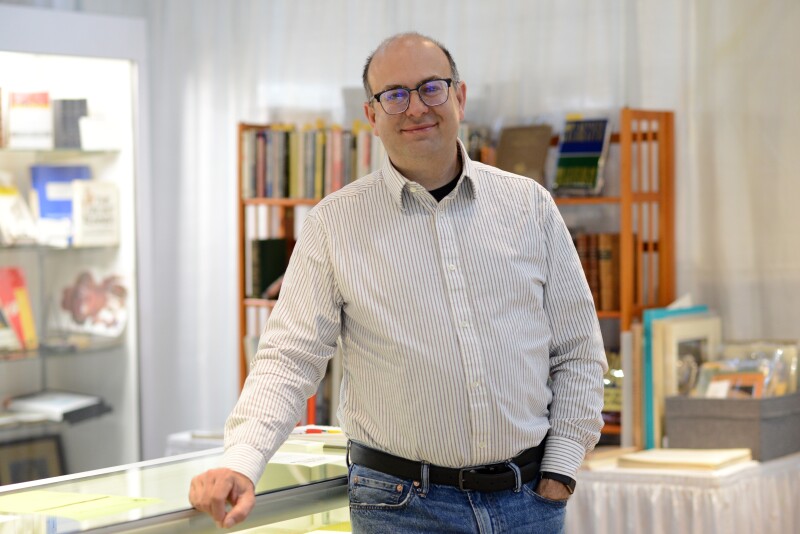
Even the greatest collections can have humble beginnings.
Collecting can spring from many urges. For some, children’s books remind them of a treasured age of discovery. For others, the inspiration of particular authors or artists can spur the quest for additional works - first to enjoy themselves, and then to preserve for future generations. Others, like myself, seek ephemeral items to help piece together the fragments of an untold or forgotten story.
The Antiquarian Booksellers’ Association of America, or ABAA, joins with AbeBooks to celebrate our 75th anniversary and promote the message that 'Everyone is a collector.' For three quarters of a century, the ABAA has upheld the highest ethical standards in the book selling trade. If you explore the books, ephemera, and other offerings from our members, you will see that we celebrate all sorts of collecting.
The new generation of collectibles
AbeBooks: Alexander, now that we have a better understanding of the ABAA and collecting, can you tell us what turns an ordinary item into a collectible item?
Alexander Akin: Tastes change, and any long-time bookseller or collector can tell stories about items that were once in high demand but have fallen off the map or entire categories that only recently have come to be appreciated. Because it’s so difficult to predict value as an index of 'collectability,' it’s essential that what you collect should be meaningful to you. There are collections that can bring their owner satisfaction and pleasure even if nobody else in the world cares about that particular theme! Generally speaking, though, if you can take an under-appreciated category of material and systematically build a collection that tells a story that is fresh, others may start caring about it as well.
AbeBooks: How can I verify the authenticity of an item?
Akin: As you delve into your chosen collecting area, you will gradually build up enough experience to develop your own sense of what is genuine and what dangers may lurk in that particular corner of the market. The more material you get to see in person, the faster you can gain this experience – that’s one of the reasons book fairs can be so educational. As you find your way at the beginning, however, you can rely on the expertise of ethical dealers. Members of the ABAA abide by a code of ethics that includes a guarantee of authenticity and correct description – not just for a limited time, but for as long as that dealer is in business.
When you find other collectors in your field, don't think of them as competitors - you may be able to share knowledge, collaborate, exchange duplicates, and so on.
AbeBooks: How can I determine how much to spend on a collectible item?
Akin: Prices are always in a state of flux and, depending on what you’re looking for, you may be able to find seemingly similar examples of an item at very different price points. You’ll want to become familiar with issues of condition or publishing state that can lead to wide variations in price. A book that sells for $10 with ex-library markings might go for hundreds of dollars in better condition with a crisp dust jacket. As a rule of thumb, one should generally get the nicest example one can afford as it is most likely to be desirable to the next buyer. A professional dealer will have set a price for a reason and, if approached respectfully, will generally be happy to explain what makes a particular example special.
AbeBooks: Where can I find more guidance for my collecting journey?

Akin: As you develop your specialty, hopefully you will find a few professional dealers who handle the sort of material that you like. Get to know them because, with their experience of the market, they may be able to tell you about scarcer material that might become available even if it isn’t anywhere to be found at the moment. If they know what you’re looking for, they can be well situated to grab it when they see it, having kept you in mind.
Whatever you collect, from 15th century Incunabula to punk rock zines, you can search for online communities or even professional organizations dedicated to that topic. For example, collectors of miniature books (under three inches) can join the Miniature Book Society - which is not only online but holds annual Conclaves and other events for the collecting community to meet in person. When you find other collectors in your field, don't think of them as competitors - you may be able to share knowledge, collaborate, exchange duplicates, and so on.
Also, be sure to educate yourself. Are there bibliographies in your chosen field? Have historians written about relevant people or events? These kinds of resources can help fit your collection into a broader context and, who knows, you may find material that challenges those existing narratives!









